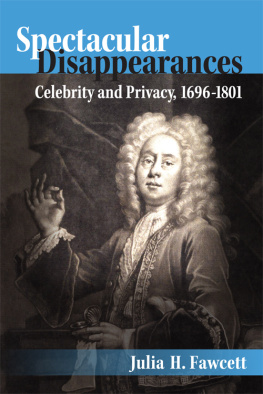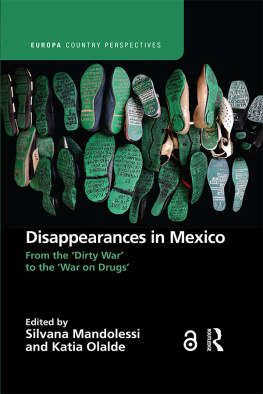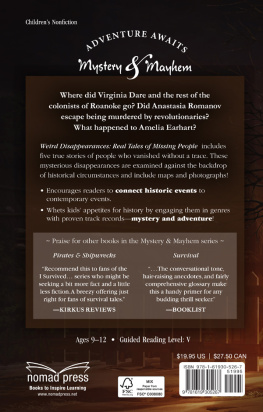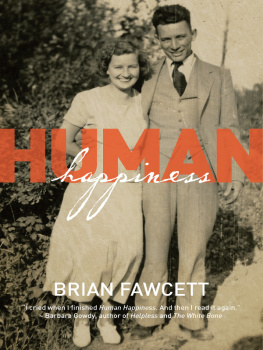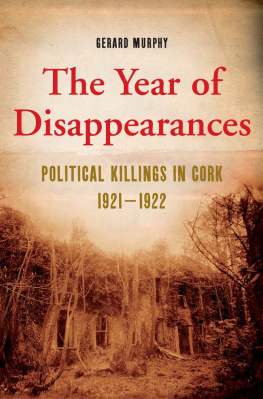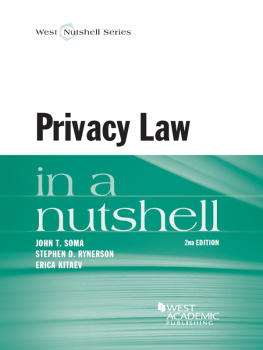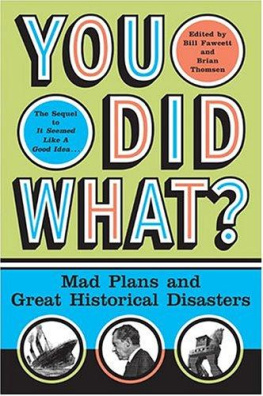Julia H. Fawcett - Spectacular Disappearances: Celebrity and Privacy, 1696-1801
Here you can read online Julia H. Fawcett - Spectacular Disappearances: Celebrity and Privacy, 1696-1801 full text of the book (entire story) in english for free. Download pdf and epub, get meaning, cover and reviews about this ebook. year: 2018, publisher: University of Michigan Press, genre: Romance novel. Description of the work, (preface) as well as reviews are available. Best literature library LitArk.com created for fans of good reading and offers a wide selection of genres:
Romance novel
Science fiction
Adventure
Detective
Science
History
Home and family
Prose
Art
Politics
Computer
Non-fiction
Religion
Business
Children
Humor
Choose a favorite category and find really read worthwhile books. Enjoy immersion in the world of imagination, feel the emotions of the characters or learn something new for yourself, make an fascinating discovery.
- Book:Spectacular Disappearances: Celebrity and Privacy, 1696-1801
- Author:
- Publisher:University of Michigan Press
- Genre:
- Year:2018
- Rating:3 / 5
- Favourites:Add to favourites
- Your mark:
- 60
- 1
- 2
- 3
- 4
- 5
Spectacular Disappearances: Celebrity and Privacy, 1696-1801: summary, description and annotation
We offer to read an annotation, description, summary or preface (depends on what the author of the book "Spectacular Disappearances: Celebrity and Privacy, 1696-1801" wrote himself). If you haven't found the necessary information about the book — write in the comments, we will try to find it.
Spectacular Disappearances: Celebrity and Privacy, 1696-1801 — read online for free the complete book (whole text) full work
Below is the text of the book, divided by pages. System saving the place of the last page read, allows you to conveniently read the book "Spectacular Disappearances: Celebrity and Privacy, 1696-1801" online for free, without having to search again every time where you left off. Put a bookmark, and you can go to the page where you finished reading at any time.
Font size:
Interval:
Bookmark:
 Page i
Page i Julia H. Fawcett
University of Michigan Press
Ann Arbor
Page ivCopyright 2016 by Julia H. Fawcett
All rights reserved
This book may not be reproduced, in whole or in part, including illustrations, in any form (beyond that copying permitted by Sections 107 and 108 of the U.S. Copyright Law and except by reviewers for the public press), without written permission from the publisher.
Published in the United States of America by the
University of Michigan Press
Manufactured in the United States of America
A CIP catalog record for this book is available from the British Library.
ISBN 9780-472119806 (hardcover : alk. paper)
ISBN 9780-472121809 (e-book)
I have often wondered if my interest in authors who wrote themselves in order to obscure themselves stems from my own anxieties about the permanence of the printed wordmy own longing (that I imagine everyone shares?) for words that linger on the page for a moment only and thenmiraculously, mercifullydisappear before their inadequacies can be exposed. I think I will always harbor this anxiety, but I have been blessed with mentors, colleagues, friends, and family members who have known how to couch their criticism in kindness and without whom I could never have summoned the courage to keep this work up or to set these words down.
The germs for this books ideas began many years ago, when, as an undergraduate at Harvard, I stumbled somewhat accidentally (to fulfill a requirement) into Lynn Festas course on Sex and Sensibility during the Enlightenment. Thank goodness for requirements. That course is one of the reasons I decided, years later, to study the eighteenth century. I owe a debt, too, to Beth Lyman, my undergraduate thesis advisor and the first to introduce me to performance theory.
I arrived at Yale believing I would study Gertrude Stein, and I often joke that I decided to study the eighteenth century because thats what all the cool kids at Yale were doing. People who knew those kids know how infectious their enthusiasm for their subject can be, and how much truth there is in the joke. My advisors, Joe Roach and Jill Campbell, reminded me of the kind of scholar I wanted to be. By asking generative questions, Jill helped me to write the book I was trying to write, and everything I was struggling to say in early drafts she has helped me to say better. Joes ebullient personality, sense of humor, and limitless generosity constantly remind me why I got into this profession in the first place. His love for the literature he reads, the performances he watches, and the job he does (not to mention the Marlon Brando impression with which he lightened the mood at my prospectus defense) is infectious and has sustained me even when the obstacles seem insurmountable and the rewards small.
My professors Ala Alryyes, Wendy Lee, Claude Rawson, Katie Trumpener, and Elliott Visconsi offered me advice and support in the classroom and outside Page viii of it, on the dissertation and beyond. My fellow graduate students Dan Gustafson, James Horowitz, Daniel Jump, Heather Klemann, Hilary Menges, Lina Moe, Nichole Wright, and especially Andy Heisel provided a supportive community at and between our Eighteenth-Century Working Group sessions. I had the good fortune in graduate school to feel welcome within not one field, but two; I owe gratitude as well to the Performance Studies Working Group and especially to Joe Cermatori, Emily Coates, Miriam Felton-Dansky, Jason Fitzgerald, Jacob Gallagher-Ross, Chris Grobe, Dominika Laster, Paige McGinley, Madison Moore, John Muse, Alex Ripp, and Ariel Watson. Marc Robinson, Katie Trumpener, and Brian Walsh went above and beyond the call of duty by reading and commenting on substantial portions of the dissertation-in-progress. So, too, did Linda Peterson, whose scholarship on Mary Robinson and whose cheerful support undoubtedly helped to make this project what it is. Sadly, Linda passed away as this book was in production; she will be greatly missed.
My original cohort at Yale could not have been more supportive: a special thank you to Liz Appel, Sam Cross, David Currell, Mahni Ghorashi, Laura Miles, Fiona Robinson, Jesse Schotter, and Steve Tedeschi. When they werent available, I found an extremely welcoming (and hilarious) adoptive cohort in Sam Fallon, Len Gutkin, Matt Hunter, Andrew Karas, Tom Koenigs, Sebastian Lecourt, Sarah Mahurin, Tessie Prakas, Natalie Prizel, Aaron Ritzenberg, Justin Sider, and Joe Stadolnik, Thanks, too, to Erica Sayers and Ruben Roman, who never ran out of Hersheys kisses.
The intellectual communities that have supported this project extend far beyond Yale. At Stanford, where I spent a year as a visiting student, John Bender, Blakey Vermuele, and Peggy Phelan welcomed me into their classrooms, their colloquia, and their conversations. Nathalie Phillips, James Wood, and especially Doug Jones and Derek Miller were generous with their thoughts, their time, and their friendship.
These communities include, too, those that cross institutional boundaries but are sustained by Joe Roachs influence and by the shared strangeness of studying performance within literature departments. I am especially grateful to Emily Anderson, Misty Anderson, Paula Backscheider, Jason Shaffer, and Stuart Sherman for their thoughtful comments on the work in progress. Conversations with and talks by Robin Bernstein, Laura Engel, Elaine McGirr, Felicity Nussbaum, Nick Salvato, and Sharon Setzer added greatly to my understanding of my topic in particular and literary and performance studies in general. Joes dedication in using a Mellon Foundation grant to fund Interdisciplinary Performance Studies at Yale gave performance studies scholars Page ix in New Haven a community within and outside of our home departments. The program also gave me a postdoctoral fellowship that allowed me to continue my research after graduating, and for that, too, I am extremely grateful.
I have been fortunate to discover a wonderful institutional home at Ryerson University in Toronto, and I owe a deep gratitude to my colleagues in the English Departmentespecially Jason Boyd, Jennifer Burwell, Dennis Denisoff, Wendy Francis, Irene Gammel, Morgan Holmes, Lorraine Janzen Kooistra, Nima Naghibi, Luanne MacDonnell, Andrew OMalley, Dale Smith, Sophie Thomas, and Monique Tschofenas well as beyond the English Departmentespecially Ben Barry and Peggy Shannon. Colleen Derkatch and Laura Fisher deserve special thanks for their support, their humor, their fashion advice, and their wide-ranging knowledge of Toronto cocktail bars. In addition, I have benefitted from my proximity, in Toronto, to several other great universities and their faculty members and graduate students generosity and time. Special thanks to Brian Corman, Simon Dickie, Alex Hernandez, Tom Keymer, Laura Levin, Danny OQuinn, Fiona Ritchie, Terry Robinson, David Francis Taylor, Marlis Schweitzer, and Katie Zien. Thanks, also, to the members of the Toronto Performance Studies Working Group and the Eighteenth-Century Working Group, both of which have provided a rich intellectual community for me in Toronto.
A two-week stint at the Mellon School for Theater and Performance at Harvard University at a critical moment allowed me better to put the issues I address in this book into context. The members of my cohort that year were insightful and inspiring. I owe a special thanks to Martin Puchner for founding the School, to Rebecca Kastleman for making sure it ran so smoothly, and to Andrew Sofer for his invaluable comments on my manuscript.
Font size:
Interval:
Bookmark:
Similar books «Spectacular Disappearances: Celebrity and Privacy, 1696-1801»
Look at similar books to Spectacular Disappearances: Celebrity and Privacy, 1696-1801. We have selected literature similar in name and meaning in the hope of providing readers with more options to find new, interesting, not yet read works.
Discussion, reviews of the book Spectacular Disappearances: Celebrity and Privacy, 1696-1801 and just readers' own opinions. Leave your comments, write what you think about the work, its meaning or the main characters. Specify what exactly you liked and what you didn't like, and why you think so.

